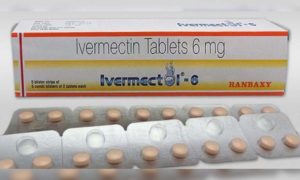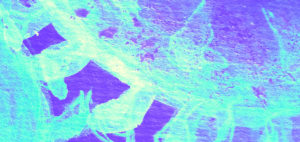How the Ketogenic Diet Stops Cancer

Many people have found the Keto diet (or ketogenic diet) of zero or extremely restricted carbohydrate intake and high fat and protein intake to be beneficial. They’ve seen anything from weight loss to mood improvement. But one benefit is looking to be much more important than any other: the Ketogenic diet’s ability to slow or stop cancer.

David Mihalovic describes the environment of cancerous growth this way:
malignant tumors represent masses of rapidly growing cells. The rapid rate of growth experienced by these cells means that cellular metabolism also proceeds at very high rates.
Therefore, cancer cells are using a lot more carbohydrates and sugars to generate energy in the form of ATP (adenosine triphosphate).
It stands then that increased sugar intake increases the risk of cancer:
Sustained high levels of sugars, as is found in diabetics, damages our cells and now is shown that can also increase our chance to get cancer.
Ketogenic Diet Stops Cancer
Numerous animal studies over the past several decades have shown that cancer cells require greater glucose consumption than healthy cells as a result of their defective mitochondrial processes. So cancer cells can only grow in a glucose-rich environment.
Studies have shown that when someone achieves a state of ketosis by consuming a fat-rich, low-carbohydrate diet, cancer growth is halted. When someone’s in a state of ketosis, ketone bodies (β-hydroxybutyrate or beta-hydroxybutyrate BHB) are used for energy instead of sugar and cancer cells are starved to death.
The concentration of BHB in human blood plasma, as with other ketone bodies, increases through ketosis. This elevated BHB level is naturally expected, as BHB is formed from acetoacetate. The compound can be used as an energy source by the brain when blood glucose is low.
A few studies in humans with certain types of brain tumors have also shown promise that the ketogenic diet improves outcomes.
One study showed that even exogenous ketones such as the ones in powder or pill form can limit metastases for certain cancers:
Ketone supplementation decreased proliferation and viability of the VM-M3 cells grown in vitro, even in the presence of high glucose. Dietary ketone supplementation with BD and KE prolonged survival in VM-M3 mice with systemic metastatic cancer by 51 and 69%, respectively (p < 0.05). Ketone administration elicited anticancer effects in vitro and in vivo independent of glucose levels or calorie restriction. The use of supplemental ketone precursors as a cancer treatment should be further investigated in animal models to determine potential for future clinical use.

I’ve been supplementing my normal low-sugar diet with some exogenous ketones and I have noticed decreased body fat, more energy, and the sensation of ketosis familiar from when I was on the keto diet, all without limiting myself to fat and protein macronutrients.
It is possible, with a healthy diet and exercise, that one’s own immune system could be enough to eliminate the cancer cells if their rapid growth is halted through sugar restriction and the ketogenic diet.
Ideal Diet
While the ketogenic diet may be effective and necessary to halt and cure someone of cancer, it may not be the ideal diet for people without cancer.
As MD Anderson explains:
For most people, the keto diet will result in weight loss, but this might not be the healthiest way to do it. When your body burns fat because it is starved of carbs, it makes ketones. Ketones are a type of acid made by your liver and then sent into your bloodstream. Too many ketones can led to dehydration and alter the chemical balance of your blood.
This ketoacidosis, which is the leading cause of death for young people with type-2 diabetes, is very dangerous.
For people without cancer, therefore, we recommend the Zero to Paleo plan of snacking on natural low-sugar, high-fiber foods through the day, exercising, then filling yourself with high-protein dinner.





